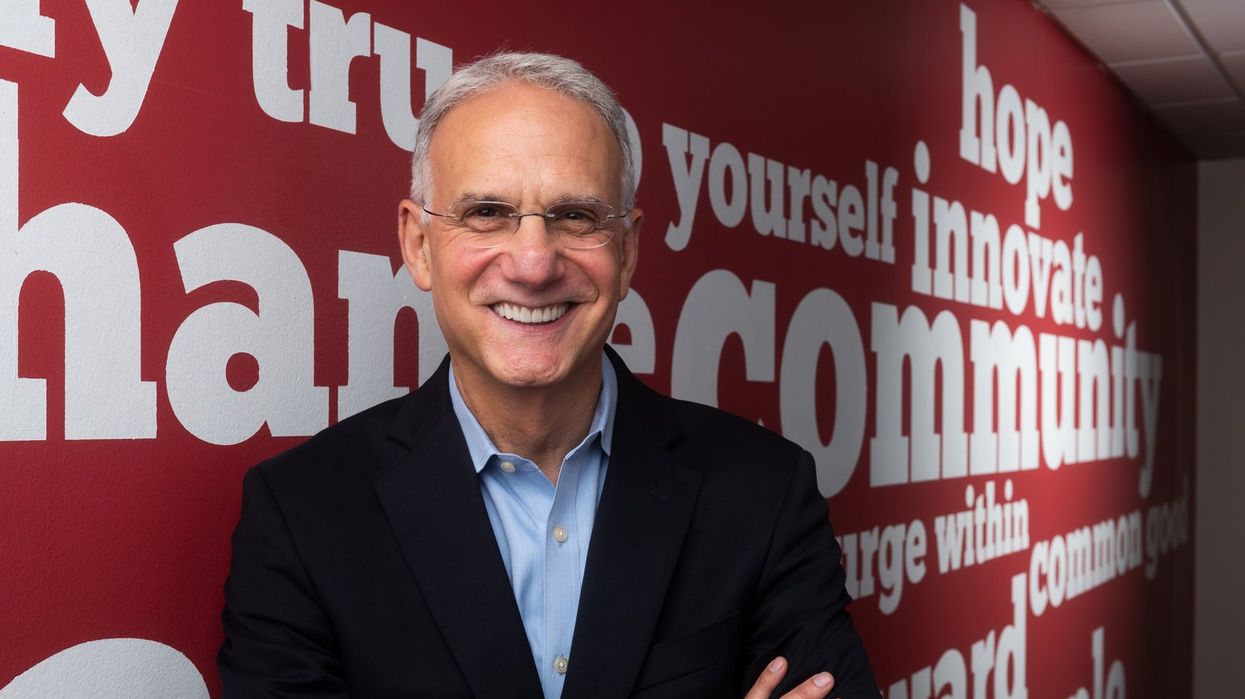Nevins is co-publisher of The Fulcrum and co-founder and board chairman of the Bridge Alliance Education Fund.
After working on more than 20 political campaigns and two highly respected nonprofits, Rich Harwood set out to create something entirely different. He founded what is now known as The Harwood Institute for Public Innovation in 1988, when he was just 27 years old (and is now its president). Soon after, he wrote the ground-breaking report “Citizen and Politics: A View from Main Street,” the first national study to uncover that Americans did not feel apathetic about politics, but instead held a deep sense of anger and disconnection.
Over the past 30 years, Rich has innovated and developed a new philosophy and practice for how communities can solve shared problems, create a culture of shared responsibility and deepen people’s civic faith. The Harwood practice of Turning Outward has spread to all 50 states and is being used in 40 countries.
Amid the division that often overshadows dialogue and the discord that drowns out understanding, a beacon of hope shines through Harwood’s current "Enough. Time to Build" campaign, a rallying cry for change and a blueprint for building the beloved community we aspire to be. It is a testament to the power of collaboratively turning outward towards each other, creating spaces where every voice is listened to and valued.
This campaign is a response to the many challenges that disturb the soul of our society. It is an acknowledgment that we have had enough of the status quo, enough of the division and enough of inaction.
Harwood's approach to community engagement is a breath of fresh air in the stifling atmosphere of apathy that can sometimes prevail. The Harwood Institute champions the idea that communities are people, not problems to be solved. The "Enough. Time to Build" campaign is a clarion call to reimagine how we come together to create change. It is not merely about community engagement as an end but about re-engaging with our humanity. It is a commitment to the idea that change does not happen in silos or echo chambers but in the fertile ground of shared experiences and collective aspirations.
Harwood's strategy is rooted in what he terms "turning outward" – looking beyond the walls of our institutions and the boundaries of our comfort zones to see and engage with our neighbors truly. It is about listening deeply, not responding or fixing, but understanding and being present with one another. In turning outward, we acknowledge the interconnectedness of our lives and the strength that lies in our diversity.
The campaign urges participants to consider the public narrative we want to create. It pushes citizens to ask, "What are the shared aspirations of our community?" rather than "What is wrong here?" This shift in perspective is powerful. It moves us from a deficit mindset, which focuses on weaknesses and gaps, to an asset-based approach, which builds on the strengths and resources present within our communities.
The "Enough. Time to Build" campaign embodies this by fostering inclusive spaces where individuals from all walks of life can contribute to shaping their community's future. It recognizes that the wisdom to address our most pressing challenges does not lie in the hands of a few experts but the many who live and work within the community.
Harwood emphasizes that as we progress with this initiative, we must remember that building a community is not a project with a start and end date. It is a process, a journey that requires patience, persistence and a willingness to be transformed by the experience. The Harwood Institute's approach is not about quick fixes but about cultivating the conditions for sustainable change.
The "Enough. Time to Build" campaign is an invitation to act with intentionality and purpose. It is a commitment to build trust, bridge divides, and create a shared story of hope and possibility. It is a recognition that the time to build is now and that we are the architects of the future we wish to see.
I had the wonderful opportunity to interview Harwood for the CityBiz “Meet the Change Leaders” series. Watch to learn the full extent of his remarkable work and perhaps you’ll become more civically engaged as well.
The Fulcrum interviews Rich Harwood, President of The Harwood Institutewww.youtube.com




















